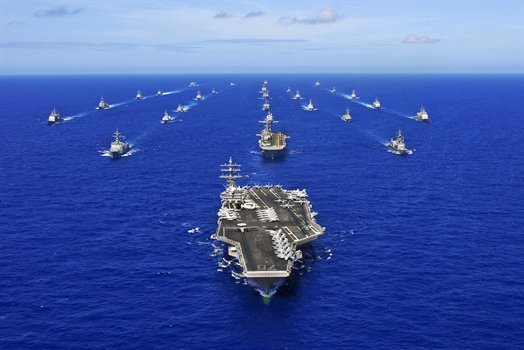Around 1,000 fishing boats have been mobilized by China to lay claim to a disputed island chain now controlled by Japan, in one squabble among several over territorial claims in Asia-Pacific.
Japan announced last week that it had bought a portion of the archipelago from a private Japanese family. The Chinese government flatly rejected the legitimacy of the sale, and hundreds of violent protests erupted in more than 50 cities in China.
Both countries claim historical and legal rights to the Diaoyu, or Senkaku, islands, which may have large deposits of oil beneath them.
The dispute has origins way back in history, with China claiming it was the first to discover the islands. But in it’s modern form, the quarrel emerged following WII, when Japan was forced to give up territory it hand seized. Now territorial claims are bungled in confusing and convoluted international treaties signed since then.
US Secretary of Defense visited Tokyo recently and tried to play it cool. “It is in everybody’s interest…for Japan and China to maintain good relations and to find a way to avoid further escalation,” he said.
But the US role in this and various other Asian territorial disputes is not one of a neutral player trying to avoid escalation. Rather, the US has pursued an aggressive posture of expanding military assets in the region and teaming up with all of China’s neighboring rivals to side with them on territorial issues in a nationalistic scheme to block China’s rise as a world power.
This has aggravated China and emboldened the less powerful states, making for a muscular clash ahead.
“Signs of a potential harsh reaction are already detectable,” a recent CSIS report said. “The US Asia pivot has triggered an outpouring of anti-American sentiment in China that will increase pressure on China’s incoming leadership to stand up to the United States. Nationalistic voices are calling for military countermeasures to the bolstering of America’s military posture in the region and the new US defense strategic guidelines.”



